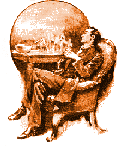
Developing Research Questions
![]()
Most people associate research with doing something: observing people, using equipment, or analyzing data. However, the most critical parts of the research process are those parts that are associated with thinking not doing. This section explains how to develop research questions, define variables, and formulate hypotheses. Unless these three areas are carefully done the researcher will waste his/her time in running around observing people, using equipment, and analyzing data.
After one has become interested in an area of inquiry, and has studied the available literature, it is time to formulate a research question and develop hypotheses. This stage is the most crucial part of research. If one is not exactly clear about what one is studying, then the result is a very muddy research study. Contrary to myth many research studies are muddy and ill conceived, because of careless thinking at this stage of the process.
A research question is a formal statement of the goal of a study. The research question states clearly what the study will investigate or attempt to prove. The research question is a logical statement that progresses from what is known or believed to be true (as determined by the literature review) to that is unknown and requires validation.
The two paragraphs below are an example of how the literature review is summarized and how the research question is developed.
The research question, as may be deduced from the above example, is a statement of what the researcher wants to discover. The research question is based on previous discoveries (as located in the literature review) and can be either a general statement or a specific hypothesis. The research question is the purpose of a study summed up in one or two sentences. Often the title of a research study will be the research question.
Often to begin the literature search process that preceeds the development of a research study, the researcher formulates a research question. One way to do this is to write a Topic Sentence. This is the research question summarized in one sentence of this form: "What is the effect of something on something else?" Let's define the terms in the example.
Let's define the components:
It is important to be able to identify the research question. The other components of a study grow from the research question in a logical manner. Once we have a clear research question, the question leads to specific variables. The variables are the observable phenomena that can be studied. A variable varies, that is it can be observed to change, or can take on different attributes. Gender is a variable and it can take on two different attributes, male and female. A knowledge of the variables allows us to understand the hypotheses of the study. The hypotheses describe the predicted relationships between the variables. The next chapter goes into more details.
![]()